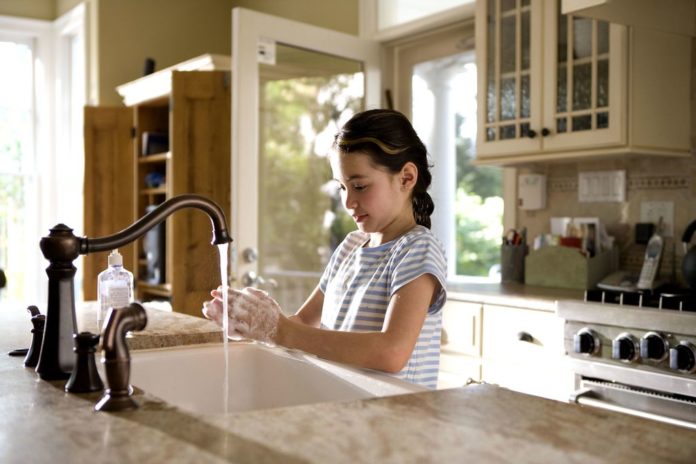Hand hygiene is very important for kids’ health. But what they use to clean hands can also make a big difference
Kids normally have a lot of runny noses and sore throats, they keep touching floor and out of reach places which are infested with germs. Thats especially true for kids attending play schools or day care.
Keeping their hands clean is very important lesson in teaching kids proper hygiene. But how they clean could make a lot of difference in how often they fall sick or stay healthy. Hand sanitizer is a better way to clean hands than washing just with soap and water, a study published in Pediatrics found.
Researchers in Spain found that kids who cleaned their hands with sanitizer instead of soap and water missed less number of days at school, and had fewer respiratory infections. They also were prescribed fewer antibiotics.
I think this does build on previous literature to support the notion that you can reduce the spread of respiratory tract infections in really young kids if you use alcohol hand sanitizer
Researchers studied 911 children up to age 3 who attended 24 day care centers in Almería, Spain, over an eight-month period. Children were split into three groups: One that used hand sanitizer, the second one used soap and water, and a control group that followed the day care’s standard hand-washing routines.
Kids of all three groups attended hand hygiene workshops before the study began. But the hand sanitizer and soap-and-water groups were given additional lessons about respiratory infections and fevers and received hand outs about hand hygiene. They were given hygiene protocols including washing hands before and after lunch, as they arrived home and after coughing, sneezing or blowing their noses, the study said.
The soap-and-water group had a 21 percent higher risk of contracting a respiratory infection than the hand-sanitizer group. When it came to antibiotic prescriptions, soap resulted in 31 percent more than sanitizer.
Respiratory infections, which can range from common colds and cough to pneumonia, can be dangerous in infants and toddlers because their bodies and immune systems are less equipped to fight them off than healthy adults.
Finding ways to reduce them, as well as antibiotic use, could be a significant public health win, the study authors said.
“I think that the main contribution of this paper is its focus on really young children in day care,” said Dr. Don Goldmann, chief medical and scientific officer emeritus at the Institute of Healthcare Improvement. “I think this does build on previous literature to support the notion that you can reduce the spread of respiratory tract infections in really young kids if you use alcohol hand sanitizer.”


